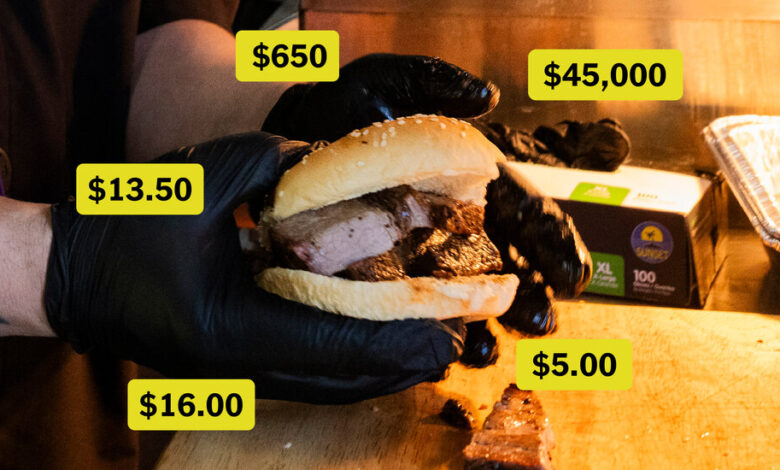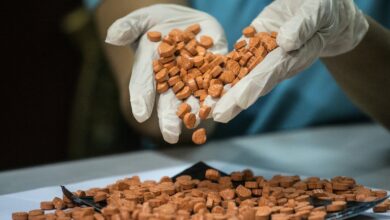He Began With Sauce. Here’s Why This Brisket Sandwich Goes for $13.50.

The thing is, Mr. Rivera never had any intention of selling meat.
A New York City native and barbecue aficionado, he became obsessed with a piquant sauce he tasted in 2009 at a Mets game. He set out to recreate it at home, a quest that led him to quit a secure job as an executive chef and enter culinary school.
By 2019, he was marketing his own sauces, which evoke flavors of traditional Puerto Rican cooking. He used the Father & Son’s moniker, with a label featuring a snapshot of him and his son stirring a pot.
Then the pandemic and an injury kept him home. Mr. Rivera trawled online for insights.
In 2021, he started selling his sauces on the weekends at the Gun Hill Brewery in the Allerton neighborhood of the Bronx until it closed last month. A friend brought a smoker for meat to make it easier for customers to taste sauce samples. Food ran out in three hours, he said.
“The food outshone the sauce,” he said. “The breadwinner was the food.”
What Mr. Rivera assumed would be a weekend one-off is now on the verge of becoming something else, he said: a full-time small business, with help from his wife, Jasity Soltero, their 17-year-old son Mason, and some cousins as needed. Mr. Rivera has developed a menu featuring his take on Puerto Rican classics like roast pork or yellow rice with pigeon peas. He wants to remind people that Puerto Rico’s Indigenous people also barbecued meats.
“He has the best-tasting brisket I ever had,” said Miguel Antonio Salamanca, a chef, at a recent community festival at Co-op City. He added: “I felt this was the place to be.”
Depending on how much meat goes in the sandwich and the quality of the cut, the price of the meal in New York City can range from as low as Mr. Rivera’s offering, which is his best seller, to over $20 elsewhere.
Challenges and surprises abound, including fluctuating meat prices and rising costs for diesel fuel and paper products, said Ben Goldberg, co-founder of the New York Food Truck Association. The pandemic led to more outdoor events, which can actually be more profitable for food vendors than street sales, he said.
Even so, Mr. Rivera’s business takes a lot of work. Sometimes he prepares food at a commercial kitchen in Westchester County, which costs him $100 to $300 a visit. He often sleeps in his pickup truck overnight when he cooks meat for an event, and he tailors certain menus. For Co-op City, he added a meat and three-side combo plate for about $20, and to keep families happy, he offered hot dogs, fries and juice boxes.
Mr. Rivera has to stay nimble, like when his pickup truck broke down and a rental cost him $500 for the weekend, though he only needed it for a day and a half. His favorite brioche rolls are not always available, so he might switch to a cheaper option last minute.
But there are bright spots: His plan to go full time after three itinerant years keeps him motivated. His first employee outside the family, an apprentice, will be a help.
“What’s stopping me is I’m at that apex where I can see the view from the top,” Mr. Rivera said. “Now I need a staff I can train and walk away for a day.”
Produced by Eden Weingart, Andrew Hinderaker and Dagny Salas. Development by Gabriel Gianordoli and Aliza Aufrichtig.



